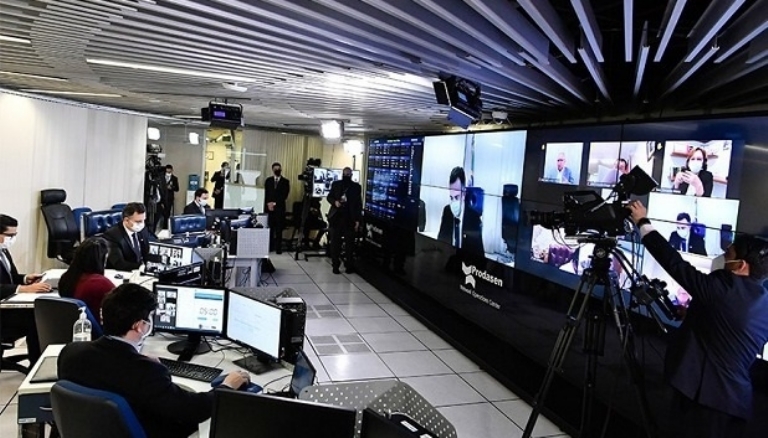

The Senate Plenary approved the provisional measure (PM) that increases taxation on bank profits, reduces tax benefits for the chemical industry and removes exemptions on fuels and derivatives in the Manaus Free Trade Zone (MP 1.034/2021). It also reviews the distribution of sports lottery receipts. The Senate made changes to the text, which goes back to the Chamber of Deputies. The PM needs to be completed by June 28th to not lose its validity.
The intention of the proposal is to offset the reduction in tax rates that are levied on diesel oil and cooking gas. In its original version, the PM only addressed the taxation of banks and the chemical industry, and also contained rules that limited the purchase of tax-reduced cars by people with disabilities. The Chamber of Deputies added the Free Zone and fixed-odds (sports) betting and lotteries, and the Senate removed the changes for the purchase of automobiles.
The rapporteur of the proposal, senator Ciro Nogueira (PP-PI), had accepted the text produced by the Chamber, but the Plenary decided to incorporate three amendments from the parliamentarians. The government leader, senator Fernando Bezerra Coelho (MDB-PE), announced that the Executive should veto the section referring to the Free Zone, because this issue would need to be addressed through a complementary bill (PMs only cover matters of ordinary law).
Deputies also included in the text a change in the distribution of the collection of fixed odds betting lotteries, also known as sports lottery. According to Ciro Nogueira, the change makes the modality more attractive to investors. Senators maintained this initiative.
In this type of lottery, the player tries to predict the result of sporting events, such as the score, scorer of the first goal and number of cards in football matches. Unlike other modalities, in sports lottery, the player knows at the time of the bet how much he can win in case of a hit by means of a multiplier (the fixed quota) of the bet amount.

“This type of bet is already being explored internationally, in a virtual way, counting on Brazilian bettors, moving around R$ 2 billion a year, which end up being sent abroad,” says the rapporteur.
The bill revokes the destination of the proceeds from the collection of the fixed-odd betting lottery provided for by law and establishes that, from the total collected, the prizes will first come out, without fixing the amount. Of what is left, 0.05% and 0.10% will stay with social security; 0.82% with schools that achieved performance targets in national exams; 2.55% with the National Public Security Fund (FNSP); 1.63% with clubs that have ceded their symbols for lottery use and 95% with lottery operators, which must be tendered for exploration by the private sector.
“In this modality, as the prize amount is associated with the bet amount and not to the proceeds of the collection, it makes sense to distribute the amounts collected according to the operator's gross profit. In this way, the distribution percentages (except for the Social Contribution on Revenue from Tenders and Prognoses) will be based on the amount calculated after the discount of taxes and prizes,” explains Ciro Nogueira.
Currently, the law divides the collection between physical bets and virtual ones. In the case of physical bets, 80% will go towards the payment of the prize and the collection of income tax, and the remainder will be divided between social security (0.5%), kindergarten, elementary and secondary schools that reach the performance goal (1%), National Public Security Fund (2.5%) and lottery operator maintenance and costing (14%).
In relation to virtual betting, 89% goes towards payment of prizes and the collection of income tax on the prize; 0.25% for social security; 0.75% for schools that achieve performance goals; 1% for the FNSP; 1% for football clubs that assign their brands to publicize and run the lottery; and 8% to cover the costing and maintenance expenses of the agent operating the lottery.
The bill also amends Law 9613 of 1998, which deals with the crime of money laundering, to specify that companies that operate lotteries of any kind with payment of prizes in cash or real estate will be subject to financial control. This control is carried out by banks and other financial institutions, which must submit reports to the Central Bank's Financial Intelligence Unit (UIF).
For the rapporteur, the amendment seeks to subject companies that operate lotteries to the control mechanism. “Certainly, one of the ways to launder money is precisely the acquisition, at a prize, of winning tickets. We are sure that the fixed-odd betting system now proposed will reduce the size of the illegal online betting market and will increase tax collection, bringing more resources to social security,” says Nogueira.
Source: GMB